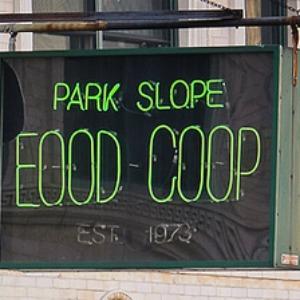BOB GARFIELD: This is On the Media, I’m Bob Garfield.
BROOKE GLADSTONE: And I’m Brooke Gladstone. Last week, a food Coop in Park Slope, a tony liberal Brooklyn nabe, had an internal debate over whether to boycott products from Israel. Local papers and news channels covered the controversy. This is from the local ABC affiliate.
[CLIP]:
REPORTER: It’s been a contentious long-running debate. Eyewitness News Reporter Carolina Leed is in the Coop in Park Slope. Carolina.
[END CLIP]
BROOKE GLADSTONE: Okay, but the Park Slope Food Coop controversy was also covered by journalists at outlets like CNN, The Atlantic, Wire, Time, The Nation, Commentary, The Washington Post, some foreign newspapers. It was maybe the most covered grocery store story, ever! “The Daily Show” even filmed a satirical expose.
To witness this struggle firsthand, I traveled to this holy place, home to so many different kinds of devoted NPR listeners. We often hear about liberal bias or conservative bias in the media. There’s bad news bias, visual bias, narrative bias, even fairness bias. But this is a story about a members only food store with a few thousand customers deciding whether to stock a handful of their inventory. So why were the media there in droves? Because they already were there in droves. Like all those summertime stories about Martha’s Vineyard, this is a clear-cut case of convenience bias.
As The Guardian’s Brian Braiker observed, while covering the Coop’s Meeting, “It doesn’t hurt publicity that 87% of New York’s working journalists live in Park Slope.” Among that made-up number is Brian himself, whose access to the contentious meeting was assured, as he is also a member of the Coop.
When your local grocery store happens to be in a neighborhood filled with ink-stained wretches, a local tiff can suddenly go global! Full disclosure: Much as I hate being reduced to a cultural stereotype, I too live in The Slope. But I don’t belong to the Coop. That’s another story. Maybe I can sell it to The Times.
[MUSIC/MUSIC UP AND UNDER]

